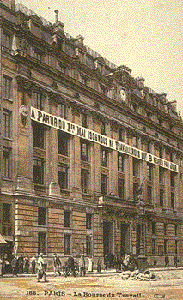The General Confederation of Labor - Workers' Force, is one of the five major union confederations in France. In terms of following, it is the third behind the CGT and the CFDT.

The French Democratic Confederation of Labour is a national trade union center, one of the five major French confederations of trade unions, led since 2012 by Laurent Berger. It is the largest French trade union confederation by number of members (875,000) but comes only second after the Confédération générale du travail (CGT) in voting results for representative bodies.

The Solidaires or Solidaires Unitaires Démocratiques (SUD) is a French group of trade unions.

The General Union of Algerian Workers is the main Algerian trade union, established February 24, 1956 with the objective of mobilizing Algerian labour against French colonial and capitalist interests. It was banned shortly afterwards, in May 1956.
A company or "yellow" union is a worker organization which is dominated or influenced by an employer, and is therefore not an independent trade union. Company unions are contrary to international labour law. They were outlawed in the United States by the 1935 National Labor Relations Act §8(a)(2), due to their use as agents for interference with independent unions. Company unions persist in many countries, particularly with authoritarian governments.

The Bourse du Travail, a French form of the labour council, were working class organizations that encouraged mutual aid, education, and self-organization amongst their members in the late nineteenth and early twentieth centuries.
Prior to Algerian independence in 1962, trade unions in Algeria were structured within regional organizations of French trade unions. After independence the General Union of Algerian Workers (UGTA) became the sole trade union center. The UGTA was linked with the Front de Libération nationale; however, in 1989, with constitutional changes and new laws the UGTA was distanced from the FLN and no longer retained the position of sole trade union center. Despite this, the UGTA continues to be, in practice, the only center - with few trade unions outside its affiliation.
The Charter of Amiens was adopted at the 9th Congress of the Confédération générale du travail (CGT) French trade-union, which took place in Amiens in October 1906. Its main proposal was the separation between the union movement and the political parties. The CGT was then dominated by anarcho-syndicalists who preferred the constitution of an alternate system through the elaboration of workers' union rather than moderate reforms through the electoral path. The motion for the Charter was drafted by Victor Griffuelhes, general secretary of the CGT, and Émile Pouget. The Charter was adopted by 830 participants, 8 having voted "no" and 1 abstained, and marked the victory of the current of revolutionary syndicalism in the CGT of the time.

Pierre Monatte was a French trade unionist, a founder of the Confédération générale du travail at the beginning of the 20th century, and founder of its journal La Vie Ouvrière on 5 October 1909. Monatte has been considered one of the great figures of revolutionary syndicalism.

The Confédération générale du travail unitaire, or CGTU was a trade union confederation in France that at first included anarcho-syndicalists and soon became aligned with the French Communist Party. It was founded in 1922 as a confederation of radical unions that had left the socialist-dominated General Confederation of Labour (CGT), and in 1936 merged back into the CGT.

Confédération générale du travail de Guadeloupe is a trade union centre in Guadeloupe. CGTG was founded in 1962, as the Guadeloupean federation of the French Confédération générale du travail became an independent centre. CGTG is particularly strong amongst banana plantation workers and in the Basse-Terre area.
Confédération générale du travail du Burkina is a revolutionary national trade union centre in Burkina Faso. Bassolma BAZIE the general secretary of CGT-B.

René Belin was a French trade unionist and politician. In the 1930s he became one of the leaders of the French General Confederation of Labour.
The Confédération générale des travailleurs africains was a trade union centre in French West Africa, in existence from 1956 to 1957.
The General Union of Negro African Workers, more widely known by its French name Union générale des travailleurs d'Afrique noire, was a pan-African trade union organization. Ahmed Sékou Touré was the main leader of the organization. In its heyday, around 90% of the trade unions in Francophone West Africa were affiliated to UGTAN.
Confédération africaine des travailleurs croyants-Republique Centrafricain was a national trade union centre in the Central African Republic. The organization emerged from the Ubangi-Shari branch of the French trade union centre CFTC, which became the Ubangi-Shari affiliate of the Confédération africaine des travailleurs croyants in 1957. CATC was affiliated to the International Federation of Christian Trade Unions.
Confederação Geral dos Trabalhadores de Angola was a Catholic Angolan trade union organization in exile. CGTA was founded in 1962. CGTA advocated in favour of 'trade union pluralism', and was independent of political parties.

The World Federation of Teachers Unions known by its French initials FISE is an international trade union of educators affiliated with the World Federation of Trade Unions.














